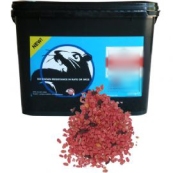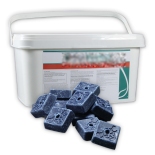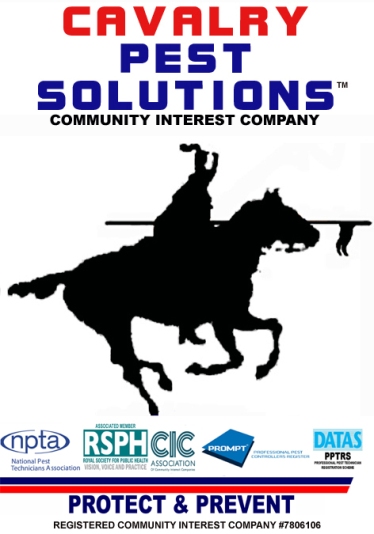Join The Resistance! (Don’t, Actually!)
Posted: 03/12/2013 Filed under: business, education, Home and Garden, News, pets, Uncategorized | Tags: Agriculture, Biology, British Pest Control Association, Business, Cavalry Pest Solutions, Cavalry Pest Solutions CiC, elliot lowe, mutant rats, Pest and Disease Control, Pest control, Pest Control Wigan, Rat Poison, Rats, resistance, Rodenticide, Rodents, super rats Leave a comment
‘MUTANT SUPER RATS’
If you’ve recently seen a headline similar to the above, Don’t be unduly alarmed, the fact that you’re reading this blog means that you’re about to find out just what the Issue is and what is being done about it!
Rodenticides in The U.K
With the exception of one (Alphachloralose), All rodenticides licensed to control rats and mice in the u.k are anticoagulants, that is they interfere with the clotting process of blood, this means that death is normally due to internal haemorrhage.
The most famous of these compounds is ‘warfarin’ (Wisconsin alumni research foundation + Coumarin) commonly used to treat thrombosis and similar conditions in humans.
Warfarin, along with Chlorophacinone and Coumatetralyl are known as first generation anticoagulant rodenticides (FGARs)
Resistance to the first generation of anticoagulant rodenticides was discovered in rats (R. norvegicus and R. rattus) and mice (Mus musculus domesticus) in the United Kingdom around 1960, approximately 10 years after the first use of anticoagulant rodenticides.
Similar resistance has now been reported in many countries across the globe.
The second-generation anticoagulant rodenticides (SGARs) were specifically developed to overcome resistance, but resistance to several of these more potent analogs has now been detected.
Continued use of anticoagulant rodenticides against these populations of resistant rats is likely to maintain the selection pressure toward higher prevalence and degrees of resistance.
Second Generation Anticoagualnt Rodenticides (SGARS)
The 2 SGARS which are the main focus of the problem are Difenacoum and Bromadiolone, both are ‘multi-feed’ rodenticides (That is, a rodent usually needs to feed on them a number of times before the active ingredient takes effect) and both are available to the professional sector AND the general public. Any rodenticide product that you see in the high street, supermarket etc will be one of these two.
There are other 3 SGARS available, which have greater levels of toxicity than Difenacoum and Bromadiolone, Brodifacoum, Flocoumafen and Difethialone. There is no known resistance to products containing these actives. They are technically ‘multi-feed’ rodenticides but Rats & Mice frequently eat enough in one feed to have a lethal effect, This has led to some people referring to them as ‘single-feed’
At present it is illegal to use any of these 3 outdoors.
Resistance in Rats and Amateur Use
Although genetic resistance occurs naturally in Rats and resistant organisms are simply following the rules of evolution; the best-adapted individuals survive and pass their resistance on to their offspring, Incorrect usage of rodenticides can actively increase resistance.
The availability of these products to the general public is believed to have contributed to the spread of resistance throughout the U.K.
Many professionals feel that rodenticides shouldn’t be available for use by untrained members of the public, Pest Controllers have to produce evidence of qualifications and training to suppliers when ordering products.
Another problem is that amateur users are less likely to interpret safety instructions on correctly and are less likely to understand how to use the products to best effect.
Personally, as well as the Issues already mentioned I feel that the sale of products to amateur users devalues The Industry and disregards our role in contributing to safeguarding public health.
Environmental Concerns
Obviously, SGARs are not selective and precautions need to be taken to minimise the risk to non-target species and it is when this does happen, for example if rodenticide is eaten by a vole that in turn is caught and eaten by a kestrel that the rodenticides enter the food chain and the problem of ‘secondary poisoning’ occurs.
Industry Response
The Campaign for responsible rodenticide use (CRRU) (Cavalry Pest Solutions are registered CRRU Supporters) has produced the CRRU Code, a 7 point strategy to minimise risks to the environment and non-target species. The CRRU also developed ‘Wildlife Aware’ Accreditation in conjunction with BASIS-PROMPT. (At Present, The only Pest Controller registered in the Wigan Borough as being ‘Wildlife’ Aware Accredited is Elliot Lowe, Senior Pest Control Officer at Cavalry Pest Solutions.)
Last year,The Health & Safety Executive invited a number of stakeholders from across the country, representing pest control, gamekeepers, environmental organisations to a meeting to discuss the way forward for the use of SGARs in The U.K. (Cavalry Pest Solutions were one of the stakeholders invited to the meeting)
Proposals have suggested that a Stewardship Scheme headed by the CRRU is the preferred option, further meetings with stakeholders are to be held next year.
Links:
http://www.wigantoday.net/news/local/beware-mutant-rats-1-6254149
Focus on Rodents – Gnawing Behaviour.
Posted: 09/02/2013 Filed under: business, education, Uncategorized | Tags: Agriculture, Biology, Business and Economy, Cavalry Pest Solutions, Cavalry Pest Solutions CiC, elliot lowe, Environmental health, Gnawing, Mice, Pest control, Pest Control Wigan, Pest Infestation, Pest Problems, Pests and Diseases, Rats, Rodents Leave a commentNew Video on YOU TUBE from Cavalry Pest Solutions Focus on Rodents - Gnawing
Do You See? We’re a C.i.C, You See!
Posted: 12/11/2012 Filed under: business | Tags: British Pest Control Association, Cavalry Pest Solutions CiC, Chartered Institute of Environmental Health, Environmental health, Perfect Storm, Pest control, Pest Control Industry, Pest Control Wigan, wigan 2 CommentsEthical Pest Control….Whatever Next?
Wigan‘s Entrepreneurial Pest Controller, Elliot Lowe is at it again with what he believes is a first for the U.K’s Pest Management Industry.
Elliot is in the process of launching Cavalry Pest Solutions as a Community
Interest Company, a non-profit social enterprise.
Elliot explained “It’s really quite simple, A CiC is run just like an ordinary LTD
Company but has an asset lock and a profit cap set by the government, profits
made by the company above this are re-invested into the community.
Cavalry Pest Solutions CiC will provide professional & efficient Pest Control to
domestic, commercial & Rural customers and the surplus profits will be directed to providing free educational talks and workshops to community
groups and to providing a form of subsidised Pest Control that supports Local
Authority provision.”
A booklet published by the Chartered Institute of Environmental Health, ‘The
Perfect Storm’ and a recent Episode of Panorama have highlighted the potential consequences of budget Cuts on Council Pest Control Departments.
The Chief Executive of The Chartered Institute for Environmental Health, Mr Graham Jukes believes that the proposal “is very much in line with current government thinking and will add in some way to addressing the problem of the poor and disadvantaged in dealing with pest control problems”.
The Pest Control Industry is undergoing a huge period of change due to
European legislation as well as dealing with the effect of the current austerity
measures and Elliot feels that his new approach has the potential to make a
significant contribution “Both the British Pest Control Association and the
CIEH have highlighted the fact that the public image of the Pest Control
Industry needs changing and I am firmly committed to using Cavalry Pest
Solutions CIC to contribute to raising the profile of our Industry whilst at the
same time providing support to Local Authorities that hopefully may ease
some of the financial pressure they are under. I’m passionate about Pest
Control, It’s my profession and I’m proud of it, and I feel privileged to be part of something that can make a difference. Customers can feel that too, knowing that whenever they choose Cavalry Pest Solutions to provide Pest Control
Inspections, Treatments and Proofing, a percentage will be invested into
improving the quality of living of those most in need”






